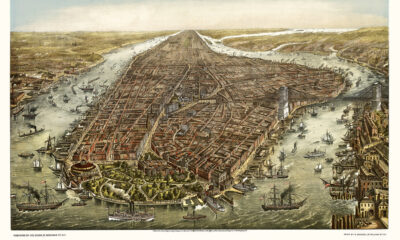Finance
Economic vignettes of the Nazi officer’s wife

As I said in my previous post on The Nazi officer’s wifeI see economics everywhere. This book is no exception.
Here are two.
First some background for the first one. In April 1941, Edith Hahn Beer was forced to sign a contract that required her to go to an asparagus farm in Germany to perform slave labor. She and her Jewish colleagues were forced to wear yellow stars at all times. But during the time they had off, they wanted to go into town to buy things. That presented a dilemma.
She writes:
The police told us that we had to write to Vienna for the yellow stars, and that when they arrived we had to wear them at all times. But if we had done that, not a single shopkeeper in town would have waited for us. So we didn’t wear them. Our supervisors at the farm didn’t seem to care at all. I believe they started out their way [sic] to want to keep us happy enough to continue working obediently for them, even more than they wanted to please the police.
Incentives at work. Economic self-interest on the part of the regulators, who sought to meet their production quotas, overcame obedience to government regulations.
The second concerns adjustment of Hitler’s price controls.
The farmers outside the city made fortunes through barter, as people brought their most valuable items to trade for some carrots, maybe a piece of bacon or some fresh cheese. People joked that the farmers now had so many Persian rugs that they put them in the cowsheds.
By the way, I have detailed how this bartering continued after the war in response to the Allies continuing to enforce Hitler’s price controls. It’s in “German Economic Miracle,” in David R. Henderson, ed., The concise encyclopedia of economics. The barter ended as soon as price controls ended – and the German economic miracle began.











